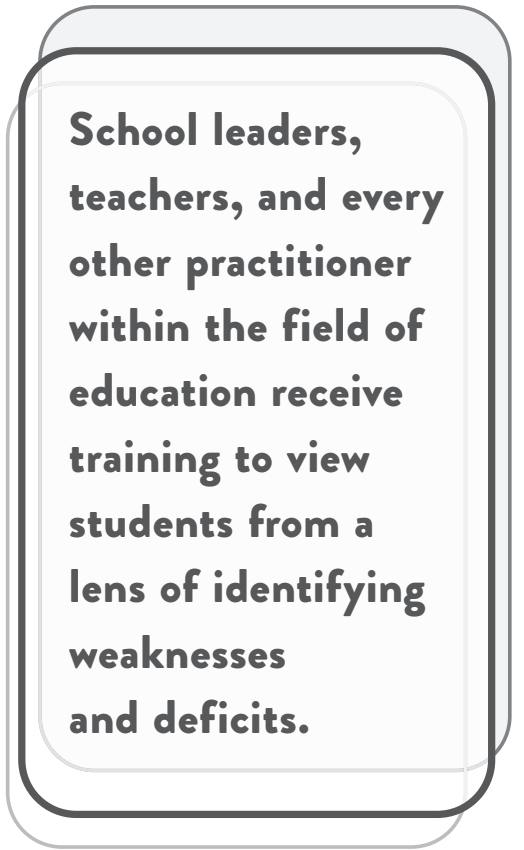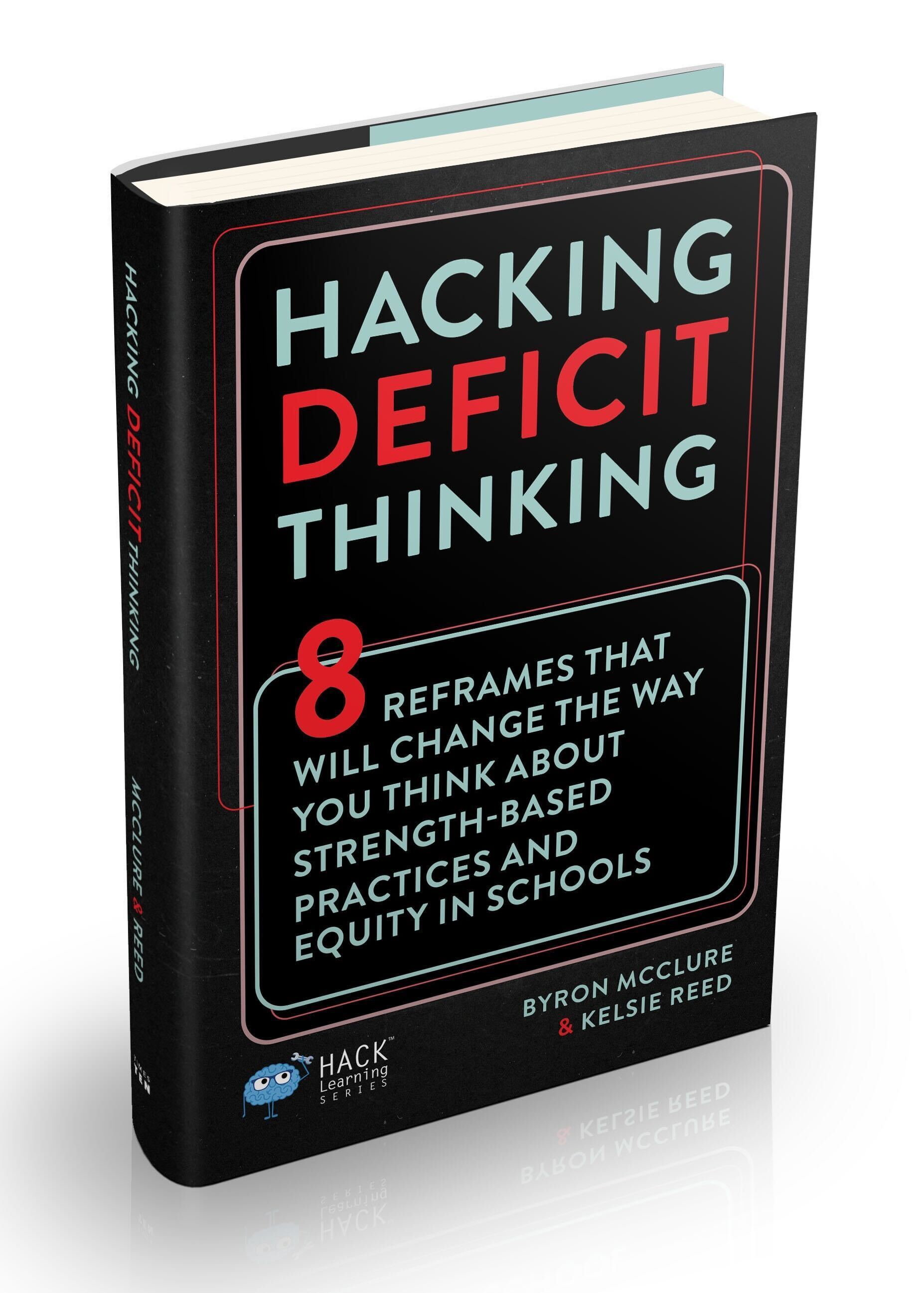Deficit Thinking: A Barrier To Success
May 24, 2023
As education continues to change rapidly, it is essential to critically examine our perspectives on students' abilities and potential. Unfortunately, deficit thinking, a mindset that focuses on students' shortcomings rather than their strengths, has long plagued educational systems. Let's dive into the detrimental effects of deficit thinking and explores strategies to foster a more inclusive and empowering approach in schools.
The Harmful Effects of Deficit Thinking
Deficit thinking, also known as the "deficit model" or "deficit theory," is a mindset that attributes educational challenges solely to the students' perceived deficiencies. Deficit thinking has far-reaching negative consequences on students, both academically and emotionally:
- Deficit thinking overlooks the multitude of factors that influence academic performance, such as socioeconomic background, cultural differences, and systemic inequalities. This perspective often leads to stereotypes, low expectations, and limited opportunities for marginalized students, perpetuating a cycle of underachievement.
- By focusing solely on deficiencies, it undermines students' self-esteem and confidence, creating a sense of learned helplessness. This can lead to disengagement, decreased motivation, and ultimately, a decline in academic performance.
- Deficit thinking reinforces stereotypes and biases, contributing to the marginalization of already disadvantaged groups. It perpetuates the notion that certain students are inherently incapable of success, ignoring the vast potential and unique strengths that individuals bring to the learning environment.

Overcoming Deficit Thinking
As educators, we need to overcome deficit thinking. To do this we need to adopt asset-based approaches that recognize and build upon students' strengths, talents, and cultural backgrounds. By shifting the focus to what students can do rather than what they cannot, all educators can create a more inclusive and supportive learning environment.
Implementing asset-based approaches involves engaging in culturally responsive teaching practices, where the cultural, linguistic, and experiential backgrounds of students is acknowledged and incorporated. By valuing and integrating students' diverse perspectives, educators can create a sense of belonging and enhance student engagement. Furthermore, personalized learning strategies can play a pivotal role in promoting student strengths. Tailoring instruction to individual needs and interests empowers students to take ownership of their learning journey and fosters a sense of agency and motivation.
Positive relationships between educators, students, and parents also play a crucial role in challenging deficit thinking. By establishing trust and open communication, educators can create an environment where students feel safe to take risks, ask questions, and explore their potential. This sense of belonging and support bolsters students' self-confidence and resilience, ultimately enhancing their academic achievement.
While shifting individual mindsets is essential, combating deficit thinking requires addressing the systemic inequities ingrained within educational systems. Policies and practices should be scrutinized to identify and rectify structural barriers that perpetuate disparities in educational outcomes. This includes providing equitable access to resources, professional development opportunities for educators, and challenging biased assessment practices.
Read more about combating deficit thinking and helping students to flourish in Hacking Deficit Thinking.
Deficit thinking is a detrimental mindset that impedes educational progress and perpetuates disparities among students. By embracing asset-based approaches, fostering positive relationships, and addressing systemic inequities, schools can create a transformative educational experience for all students. It is through these collective efforts that we as educators can foster a culture of inclusion, celebrate diverse talents, and unlock the full potential of every learner, ensuring a brighter future for all.






